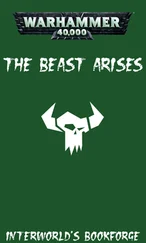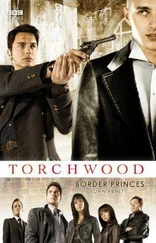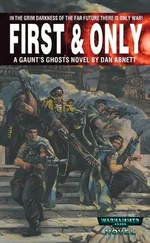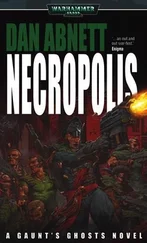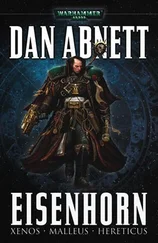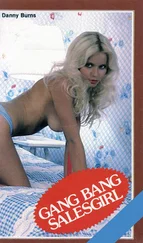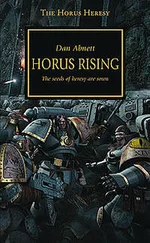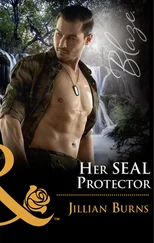Dan Abnett - Prospero Burns
Здесь есть возможность читать онлайн «Dan Abnett - Prospero Burns» весь текст электронной книги совершенно бесплатно (целиком полную версию без сокращений). В некоторых случаях можно слушать аудио, скачать через торрент в формате fb2 и присутствует краткое содержание. Жанр: Боевая фантастика, на английском языке. Описание произведения, (предисловие) а так же отзывы посетителей доступны на портале библиотеки ЛибКат.
- Название:Prospero Burns
- Автор:
- Жанр:
- Год:неизвестен
- ISBN:нет данных
- Рейтинг книги:3 / 5. Голосов: 1
-
Избранное:Добавить в избранное
- Отзывы:
-
Ваша оценка:
- 60
- 1
- 2
- 3
- 4
- 5
Prospero Burns: краткое содержание, описание и аннотация
Предлагаем к чтению аннотацию, описание, краткое содержание или предисловие (зависит от того, что написал сам автор книги «Prospero Burns»). Если вы не нашли необходимую информацию о книге — напишите в комментариях, мы постараемся отыскать её.
Prospero Burns — читать онлайн бесплатно полную книгу (весь текст) целиком
Ниже представлен текст книги, разбитый по страницам. Система сохранения места последней прочитанной страницы, позволяет с удобством читать онлайн бесплатно книгу «Prospero Burns», без необходимости каждый раз заново искать на чём Вы остановились. Поставьте закладку, и сможете в любой момент перейти на страницу, на которой закончили чтение.
Интервал:
Закладка:
He began to panic. He strained at the buckled canvas restraints. They wouldn’t give, and he didn’t want to tear or strain any of his wounds.
He came down lower, in a series of jolting drops, onto some sort of deck area or platform. Men moved in quickly from either side to take hold of the stretcher and steady it.
The Upplander looked up at their faces, and his anxiety transmuted into fear.
The men wore robes of simple, poor-quality cloth over tight body-suits of intricately fashioned brown leather. Each leather suit was constructed in artful panels, some shaped, some decorated with piercing or knotwork or furrowed lines, so that the whole resembled an anatomist’s diagram of human musculature: the wall of muscle around the ribs, the tendons of the arms, the sinews of the throat.
Their faces were animal skulls, masks fashioned from bone. Stub horns curled from discoloured skull brows. Branching antler tines rose from unicorn centre-burrs.
The eyes staring out of the mask slits at the Upplander were inhuman. They were the black-pinned yellow eyes of wolves. They shone with their own light.
Get off me! he shouted, but his voice was dust-dry in his throat, as though he hadn’t spoken for centuries. He coughed, panic rising in his chest. The bone faces crowded in around him, puzzled at his antics. All of them smiled the simpleton smile of skulls, the idiot grin of death’s face, but the eyes in the sockets and slits put the lie to that glee. The fire in the yellow eyes was predatory, a fierce intellect, an intent to do harm.
вЂGet away from me!’ he cried, finding his voice at last, dragging it out, old and rusty, from the parched creek bed of his throat. вЂGet back!’
The skulls did nothing of the kind. They came closer. Hands sheathed in intricate brown leather gauntlets reached towards his face to clamp his mouth. Some of them had only two or three fingers. Some had dewclaws.
The Upplander began to thrash in his restraints, pulling and twisting in a frenzied effort born of panic. He no longer cared if he tore sutures, or reopened a healing gash, or jarred a mending bone fracture.
Something broke. He felt it snap, thought it was a rib or a hamstring, braced himself for the searing pain.
It was the canvas cuff on his right arm. He’d torn it clean off the metal boss that anchored it to the stretcher’s frame.
He lashed out with his freed arm and felt his knuckles connect with the hard ridges of a skull mask. Something let out a guttural bark of distress. The Upplander punched again, yelling, then he scrabbled at the buckles girthed around his throat, and undid the neck straps. With his throat free, he could lift his shoulders off the hard bed of the stretcher, and raise his head clear of the leather brace that was preventing all lateral movement. He bent up, leaning over to unfasten the canvas cuff holding his left wrist. The right-hand strap was still buckled around his right forearm with a frayed tuft sprouting from its underside where he’d torn it off the steel boss.
The skulls came at him, grabbing him and trying to press him back down. Unbraced, the stretcher swung wildly. The Upplander fought them off. His legs were still strapped in. He punched and twisted, and cursed at them in Low Gothic, Turcic, Croat and Syblemic. They gibbered at him, in commotion, trying to pin him and restrain him.
The Upplander’s right leg came free. He bent it, and then lashed out a kick with as much force as he could muster. He caught one of the skulls full in the chest, and rejoiced to see the figure recoil with enough violence to tumble at least another two of its robed companions backwards.
Then his left leg tore free too. As his weight shifted suddenly, the stretcher tipped and he spilled off, falling into half a dozen of the skulls trying to keep him in place. His fists were flying. The Upplander had never been taught to fight, and he’d never had to, but terror and a frantic survival instinct impelled him, and there didn’t appear to be any huge mystery to it. You swung your fists. If your fists connected with things, you hurt them. The things jerked backwards. They uttered growls of pain or barks of breath. If you were lucky, they fell down. The Upplander milled his arms like a madman. He kicked out. He drove them back. He kicked one of them so hard that it sprawled and broke its skull mask against the smooth granite of the platform.
The Upplander found his feet. The skulls were circling him, but they had become wary. Some of them had been bruised by his slugging fists. He snarled at them, stamping his feet and gesticulating wildly with his fists, as though he was trying to scare off a flock of birds. The skulls drew back a little.
The Upplander took a second to get his bearings.
He was standing on a platform of dark granite, a shelf that had been cut, sharp and square-edged, from the rock around it. Behind him, the stretcher was swinging on its chains. To his left, a row of oblong granite blocks lined one side of the platform, permanent catafalques onto which stretchers like his own could be lowered and rested. Above him dangled four or five more chain pulleys of various gauges and sizes.
To his right, the platform overhung a gulf. It went straight down into darkness, and smelled of wet minerals and the centre of the world. The gulf was a shaft, rectangular in cross-section, and the sides of the shaft had been cut, like the platform, out of the living rock. The shaft dropped into the darkness below him in square-cut, oblong bites, like the layers of a cake, or the cubic levels of a monolithic quarry. They looked like they had been cut with sideways slices of a giant chisel.
All around him, the chamber rose in majesty, its cyclopean walls rock-hewn like the shaft, too regular and rectilinear to be a natural cave, too make-shift and imperfect to have been planned in one piece. Monumental stonemasons and mining engineers had opened this cavity over a period of decades or centuries, excising one or two levels of oblong blocks at a time, increasing the space in rectilinear levels, quarrying each layer of stone away and leaving artificial lines of division and stratification in the gigantic walls. Each phase must have been a monstrous effort, from the sheer tonnage of rock alone. The square-cut bites showed how huge and unwieldy each removed block of stone must have been. The cubic mass of a mountain had been hollowed out of the heart of a bigger mountain.
The platform and the shaft top were lit by the frosty green twilight. Watermarks streaked the horizontally scored, stratified walls, leaving downstrokes of emerald minerals and algae stain. The Upplander could not see how far up the ceiling was, because it was lost in the cavity’s darkness.
He edged backwards, the skulls around him. He became conscious of the way that every sound they made became a deep bell-echo in the vast chamber. He tried to move to keep the catafalques between him and the skulls. They circled in between the biers, trying to outflank him. He noticed that, although they looked solid-hewn, the catafalques had metal plates set in their sides. The plates incorporated vent caps, indicator lights and recognisably Terran control pads. Stout, reinforced metal ducting sprouted like drainpipes from the plates and disappeared flush into the platform. There was tech in this primordially quarried chamber, a lot of tech, and it was largely concealed.
The skulls attempted to rush him. The Upplander darted backwards and reached the pendulating stretcher. He grabbed its metal frame and steered it at the skulls, ramming it at them. They jumped back out of its way, and he rammed it again to keep them at bay. He saw the buckled canvas cuffs anchored to the stretcher’s bed. He had assumed he’d simply pulled them all off their pins, like the right-hand cuff that was still fastened around his forearm. But both leg straps and the left-hand cuff had been ripped. The waxed canvas and leather trusses had torn open along their stitching. He’d as good as wrenched himself free of his bonds.
Читать дальшеИнтервал:
Закладка:
Похожие книги на «Prospero Burns»
Представляем Вашему вниманию похожие книги на «Prospero Burns» списком для выбора. Мы отобрали схожую по названию и смыслу литературу в надежде предоставить читателям больше вариантов отыскать новые, интересные, ещё непрочитанные произведения.
Обсуждение, отзывы о книге «Prospero Burns» и просто собственные мнения читателей. Оставьте ваши комментарии, напишите, что Вы думаете о произведении, его смысле или главных героях. Укажите что конкретно понравилось, а что нет, и почему Вы так считаете.

